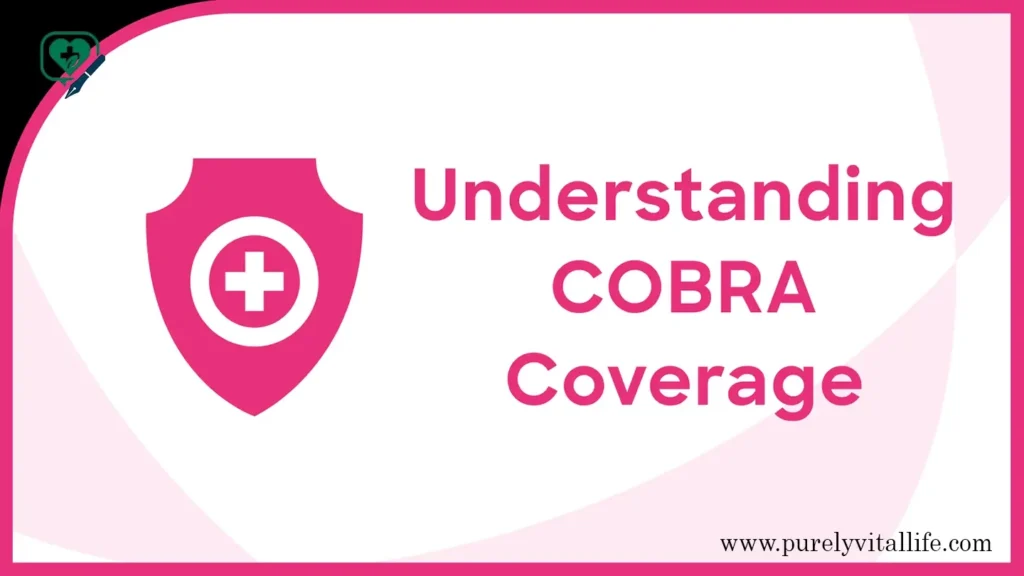
COBRA Health Insurance Decoded: Coverage, Costs, and Alternatives
Introduction to Cobra Health Insurance:
Losing a job is already stressful, and it feels even worse when you also lose your health insurance. Luckily, COBRA health insurance acts like a safety net that helps you keep your work health insurance for a while after you leave your job. This federal program gives you temporary health coverage so you and your family don’t have to worry about big gaps in medical care during a hard time.
You need to understand COBRA if you lose your job but still want to keep your health benefits. This program has both good points and some limits that can affect your money and health decisions. Whether you just got laid off, are thinking about your choices, or simply want to be prepared, knowing how COBRA works helps you make smart decisions about your health insurance.
Also Read About Is Acupuncture Insurance Coverage? A Complete Guide to Benefits and Options —>>>
In this full guide, you will learn everything about COBRA health insurance. We will talk about who can get it, what it covers, how much it costs, and other options you can try. We will also share easy steps to apply so you can find the best health insurance choice for you and your family.

What is COBRA Health Insurance?
COBRA health insurance started with a law called the Consolidated Omnibus Budget Reconciliation Act of 1985. It lets employees and their families keep their work health insurance for a while after certain big life changes, like losing a job.
Basically, COBRA acts like a bridge so you can stay on the exact same health plan you had while working. You still get the same doctors, medicine, and services you had before. This is very helpful if you need regular doctor visits, take important medicines, or already know and trust certain doctors.
COBRA works for group health plans from companies with 20 or more workers. When something happens that makes you lose your job-based health coverage, you can choose to keep it for a short time, usually between 18 to 36 months depending on what happened. This helps make sure you don’t suddenly lose important health care when you lose your job.

Who is Eligible for COBRA Coverage?
You must meet certain rules to get COBRA coverage. You need to understand these rules to know if you can use this type of health insurance.
Employment Requirements:
To get COBRA, you must have been part of your company’s health plan before you lost your job. Also, your company must follow COBRA rules, which means it has at least 20 employees. Part-time and full-time workers both count toward this number.
Qualifying Events:
You can get COBRA coverage when certain events happen. The most common event is when someone loses their job for reasons other than bad behavior. This includes layoffs, quitting, or getting fired because of performance problems. If your work hours get cut and you lose health coverage, that also counts.
Family members can also get COBRA in different situations. If your spouse or kids were on your health plan, they can keep their coverage if you lose your job. Other events for family members include divorce, legal separation, death of the worker, or if a child no longer qualifies as a dependent.
Important Restrictions:
COBRA has some limits. If you were fired for very bad behavior (gross misconduct), you can’t get COBRA. Also, if your company closes or stops offering health insurance to everyone, COBRA won’t be available.
You must act fast. You usually have 60 days from when you get the COBRA notice to decide if you want to keep the coverage. If you miss this deadline, you lose your right to use COBRA, so it’s important to reply quickly.

What Does COBRA Health Insurance Cover?
COBRA gives you the exact same health plan you had before. You will get the same medical, dental, and vision benefits. Your deductibles, copays, and coverage limits stay the same. You also keep using the same doctors, pharmacies, and special services.
Comprehensive Health Benefits:
COBRA health insurance usually covers things like regular checkups, emergency care, hospital stays, and specialist visits. If your plan had mental health or substance use help, you still get those. Your prescription drug coverage stays the same too.
If your job plan had dental and vision benefits, you can keep those with COBRA if you had signed up for them before. This way, you don’t have to worry about gaps in your health services while you look for a new job or figure out your next steps.
Comparing COBRA vs Individual Health Insurance:
The biggest advantage of COBRA is that you keep your same doctors and health plan. You don’t have to change networks, start new deductibles, or find new specialists. You just continue where you left off.
However, COBRA is only temporary. It usually lasts from 18 to 36 months. On the other hand, individual health plans from the marketplace or insurance companies can last longer. These other plans may have different benefits, doctor choices, and prices that might fit your needs or budget better.
The Cost of COBRA Coverage:
Knowing how much COBRA costs is very important before you decide. When you had job-based insurance, your employer paid part of the cost. But with COBRA, you have to pay the whole amount plus a small extra fee.
Premium Structure:
You pay 100% of the plan’s cost plus up to 2% for administration. This means you now pay your part and the part your employer used to pay. This can make your monthly costs much higher.
For example, if your plan cost $600 each month and you only paid $150 before, with COBRA you would now pay around $612 each month ($600 plus the 2% fee). Family plans can cost even more, sometimes between $1,500 and $2,000 per month depending on the plan and where you live.
Factors Affecting Costs:
Your old plan’s type affects the cost. High-deductible plans cost less, while more generous plans cost more. Your location also matters because big cities usually have higher costs than smaller towns.
Your family size affects your price too. Covering only yourself costs less than adding your spouse or kids. Some companies offer different plans, and you might be able to pick a different one when you choose COBRA if it’s available to active workers.
Also Read About How to Choose the Best Travel Insurance Plans for Your Next Trip —>>>
Payment Considerations:
COBRA premiums are usually due every month, and you must pay on time to keep your coverage. Missing payments can make you lose COBRA. Setting up automatic payments or calendar reminders can help you avoid missing deadlines. Some plans allow quarterly payments, but these require bigger payments at once.
Alternatives to COBRA Health Insurance:
Even though COBRA can be very helpful, other options might be cheaper or fit your needs better.

ACA Marketplace Plans:
The Affordable Care Act (ACA) marketplace might be cheaper than COBRA, especially if you get subsidies because of your income. Losing job coverage gives you a special chance to sign up outside the normal enrollment period.
Marketplace plans have different networks and benefits, but they give you long-term coverage. If your income is lower, you might get help paying your monthly premiums and other costs, making these plans cheaper than COBRA for many people.
Medicaid Eligibility:
When you lose your job, your income may go down enough to qualify for Medicaid. Medicaid gives full health coverage at low or no cost if you meet income requirements. Each state has different rules, but job loss often helps you qualify.
Medicaid covers checkups, medicine, hospital visits, and more. Even though your doctors might change, Medicaid helps you get the care you need without big costs.
Short-Term Health Plans:
Short-term plans cost less than COBRA and cover basic emergencies and surprise health problems. But they don’t usually include preventive care, regular checkups, or prescriptions.
These plans work well if you only need coverage for a short time before finding a new job. But they may not cover existing health problems and might have many limits compared to COBRA or ACA plans.
Comparing Your Options With Cobra Health Insurance:
When picking between COBRA, marketplace plans, and other choices, don’t just look at the monthly price. Think about your doctors, medicine, deductibles, and out-of-pocket costs. If you need to keep seeing the same doctors or take important medicines, COBRA might be worth the higher cost.
Also, think about how long you might be unemployed. If you think you’ll find a new job soon, COBRA might be the best short-term option. If you think it will take longer, marketplace plans or Medicaid might work better.
Read More About Zero Deductible Health Insurance: Peace of Mind or Too Expensive? — >>>
How to Apply for COBRA Coverage:
To get COBRA, you must follow specific steps and meet deadlines so you don’t lose your chance.
Initial Notification Process:
Your employer or plan administrator must give you a COBRA health insurance election notice within 14 days after your qualifying event. This notice explains your rights, what coverage you can keep, and how much it will cost. Read this carefully because it has important details about deadlines and costs.
The notice tells you which family members can get coverage, monthly costs, and how long you can keep COBRA. It also explains how to sign up and where to ask questions.
Making Your Election:
You have 60 days from getting the notice or losing your coverage (whichever is later) to decide if you want COBRA. This deadline is very important—if you miss it, you lose COBRA for good.
Fill out the form in your notice and clearly show which family members you want to cover and which benefits you want (medical, dental, vision). Sign and return the form by mail, email, or online.
Payment Requirements for Cobra Health Insurance:
After you choose COBRA, you must pay your first premium within 45 days. This first payment covers the time since your work insurance ended. After that, you must pay every month on time.
Set up a payment plan or automatic payments so you don’t forget. Many plans have online payment systems or automatic bank drafts to make it easier and help avoid coverage gaps.
Conclusion:
COBRA health insurance is an important option when you lose your job and health insurance. However, you must understand the rules and act fast to get the most benefits. By checking your eligibility, learning the costs, and setting up payments, you can keep your health coverage without breaks.
Always talk to your COBRA administrator if you have questions. Staying informed and careful helps you make the best choices for your health and money during tough times.
